Atlantic mag's Olga Khazan has done a 3,766-word essay on the preponderance of women in PR that touches on many of PR's opportunities, pressures and problems.
 |
Khazan interviewed 12 PR women including Deirdre Latour, senior director of external communications at General Electric; Shannon Stubo, global CC executive, LinkedIn; Cait Douglas, director of communications, Travel Effect of U.S. Travel Assn.; Sarah Roth, media manager, Golin; Megan Laney, senior A/E, LaunchSquad, and others in their own firms or at companies.
Khazan's online-only article asks "Why Are There So Many Women in PR?"
It has 17 links to sources that support what Khazan is saying and shows that the best current journalism is on the web where links are available for supporting documents and stories.
It says PR is an appealing and well-paying career for women but negatives include long hours; dealing with unresponsive editors (half male); the unending quest PR counselors must make for new business, and the need to "mollify a client with marathon conference calls."
Holder of a B.A. from American University in political science and communications and an M.A. in online journalism from the University of Southern California, Khazan has written for the Washington Post, Huffington Post, Los Angeles Times, Forbes and has appeared on MSNBC, CNN and NPR.
Journalists 'Fray Nerves' of PRs
"Pitching journalists can fray even the most ‘communal' and ‘social' of nerves, said Sarajane Sacchetti of Secret, San Francisco, marketer of deodorants.
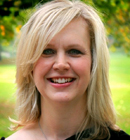 |
Careercast currently rates PR as the sixth most stressful job and has ranked it has high as No. 2. PR people are pressured on the one side by demanding clients and on the other by demanding journalists.
Khazan's sources told her that breaking into journalism is "so hard" and that PR not only pays better but is something that women excel at since they are "more collaborative, participative and pro-social than men."
As "some evidence" to support this, Khazan cites a study for the Kellogg School of Mgmt. of Northwestern University.
"Women have only been found to talk more than men when they're in collaborative settings," she writes. "Women are expected to be happier and smile more than men. Subjects in clinical studies will more readily identify androgynous, angry-looking faces as male, but they will view androgynous happy faces as female."
Jennifer Hellickson, director of marketing at SweatGuru, Portland, Ore., told Khazan: "Studies have shown that women tend to collaborate more and prefer to work on teams whereas men usually do better in competitive environments and prefer to fly solo. The male approach works well for journalists, while having a bit of a ‘people-pleaser' gene probably attracts and/or makes it easier for women to excel in the PR environment."
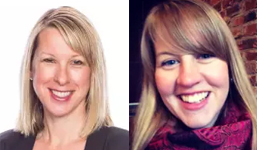 |
The alleged ability of women to be more "collaborative and social" is "repeatedly cited as one of PR's biggest draws," writes Khazan. Women are somewhat less likely to get into a battle or challenge the Establishment than men is what is being said in so many words.
She cites studies showing that women in the job market "tend to be more risk-averse than men because they are faced with steeper costs when they switch jobs" Men are said to be "more risk prone"—more likely to cross busy roads, for example.
Legal, Marketing Are Problems, Not Men
Sacchetti told Khazan, "It's all women out there. And the two people running it are dudes. That's the only thing that's puzzled me and angered me for a long time."
Other sources told Khazan that males dominate in the executive suites of PR firms. "The contrast between the workers and the C-suite is so dramatic as to be maddening," she says.
Our take on this is that the real sources of stress and frustrations in PR are not men but legal, marketing and financial executives who can be either men or women.
Legal keeps a tight rein on corporate and institutional PR, mostly confining interaction to e-mails that can be monitored. Pitches can be made but the PR people are heavily-scripted and often cannot answer questions or meet with reporters on the phone or in person. They usually cannot produce a company executive for an interview. Press conferences have about disappeared from the business world.
There is more freedom on the agency side where most of the PR that interacts with the press now resides. Khazan in a future article should explore the differences between corporate and agency PR and should also ask reporters what they think of PR.
Two reporters who have done so are New York Times columnist Dave Carr who says he can't get past "PR underlings" and Gene Weingarten of the Washington Post who has twice excoriated PR people as bombarding him with errant pitches and being unable to answer questions. "They're a hoot," he wrote May 14, 2012. Particularly "poisonous," he contends, is the melding of marketing with PR.
Women Could Control PRSA
There is one major PR organization where women could assert their dominance but are not doing so.
Four of the top five officers of PR Society of America are male while 11 of the 12 other directors are women. The board has 12 women and five men but the men are calling the shots.
The executive committee in 2005 won the power to make decisions whether or not the full board is present and that is what has happened since then.
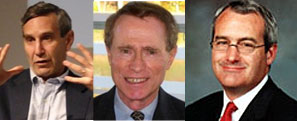 |
Joseph Cohen is current chair; Kathy Barbour is chair-elect; Mickey Nall is immediate past-chair; Blake Lewis is secretary and Mark McClennan is treasurer. Until he suddenly quit in March, CEO Bill Murray was an ex-officio member of the EC, the nominating committee and the Board of Ethics.
Although more than 70% of Society members are women and 12 of the 15 biggest chapters are headed by women, six of the seven last elected chairs have been men—Cohen, Nall, Gerry Corbett, Gary McCormick, Mike Cherenson and Jeff Julin. The exception is Rosanna Fiske who was chair in 2011. McClennan is in line to succeed Barbour as chair.
PR Society Blocks 80% from Office
If women decided to take control of the Society, which they could do so via the Assembly, they could rectify numerous abuses including the monopoly Accredited members have had on national offices since the 1970s.
This has blocked more than 80% of members from running for office for 40 years and has resulted in "leaders" who are mostly in minor jobs and have little clout with the strong-willed, non-PR staff of h.q. Much of the power at h.q. is wielded by two veteran staffers, VP of special events Karla Voth who had a package of $182,002 in 2012 (latest year available), and Judy Voss, director of professional development. Voth joined in 1990 and Voss in 2000.
Only two of the nearly 60 staffers, who pull down nearly $6 million in pay and fringes, has any background in PR and none has any background in the media. It's a hospital without doctors.
Men Sought Reform in 2010
The Committee for a Democratic PRSA, headed by three men—Richard Edelman, Dave Rickey and Art Stevens—circulated a petition in 2010 aimed at letting non-APRs run for office.
Leaders and staff did everything they could to block the drive which only got about 400 signatures. The Committee was not allowed to blast e-mail the membership and got no publicity on the Society's website or in its two publications until the last month.
The Assembly rejected the bylaw change at the 2010 conference in D.C. in 20 minutes. The 2014 conference will be held in D.C. Oct 11-14, the Assembly meeting on Oct. 11. Bylaw changes must be proposed at least a month before the meeting.
The move recalled the abortive attempt by Central Michigan in 2006 to put the Assembly in charge of the board, reversing the current order of power and copying the governance of the American Medical Assn. and American Bar Assn.
The chapter's petition was given to the board in April and was never mentioned in any Society media. No other chapter supported Central Michigan and its proposal was defeated by a vote of 261 to 19.
Society staff and leaders are up to their usual press-blocking tactics for the 2014 conference. They have thus far denied "credentials" to any O'Dwyer reporters and have rejected a request for an O'Dwyer booth at the exhibit hall that would show some 3,000 attendees our six PR informational products—website; Directory of PR Firms; weekly online/printed NL; monthly magazine; PR Buyer's Guide and O'Dwyer's PR Library with more than 700 volumes and much else and which is free to the public.
The Society has blocked all press from attending the last three Assemblies. Some editors and writers who double as PR people are allowed to join such as author Fraser Seitel and Gil Schwartz of CBS (who writes as Stanley Bing for Fortune and other media) plus more than 300 PR professors who write for media and scholarly journals. However, the Society will not let anyone join from the O'Dwyer Co. It refuses to provide a hearing on this matter.
PR people, whether women or men, have to work with editors who want access to news sources and want their questions answered. Their national Society, whose Code of Ethics champions the "free flow of information," should not be involved in any form of interference with press coverage.
Women have the power to change the Society if they so desire.


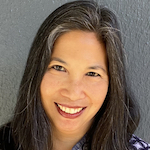 Helga Ying, who is in charge of International AIDS Society’s offices in San Francisco and Oakland, is moving to Edelman as global and US chair of Purpose.
Helga Ying, who is in charge of International AIDS Society’s offices in San Francisco and Oakland, is moving to Edelman as global and US chair of Purpose.  Emmanuel Tchividijian, who was senior VP/chief ethics officer at Ruder Finn in a 20-year stint, has established
Emmanuel Tchividijian, who was senior VP/chief ethics officer at Ruder Finn in a 20-year stint, has established  Every profession needs codes of conduct to help ensure the credible performance of its members. The public relations profession has several codes aimed at building and sustaining positive behavior but none of them addresses how practitioners must write for PR and related business purposes. (3 reader comments)
Every profession needs codes of conduct to help ensure the credible performance of its members. The public relations profession has several codes aimed at building and sustaining positive behavior but none of them addresses how practitioners must write for PR and related business purposes. (3 reader comments) Workplace diversity Issues, ranging from race to gender, have long been high profile threats to the brand. Ageism has been the exception - until now. (2 reader comments)
Workplace diversity Issues, ranging from race to gender, have long been high profile threats to the brand. Ageism has been the exception - until now. (2 reader comments)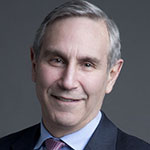 There's a battle for truth, in which people no longer share common facts and are unable to have a rational debate, Richard Edelman said during his speech at USC Annenberg School of Communication and Journalism on April 12. (1 reader comment)
There's a battle for truth, in which people no longer share common facts and are unable to have a rational debate, Richard Edelman said during his speech at USC Annenberg School of Communication and Journalism on April 12. (1 reader comment)


 Have a comment? Send it to
Have a comment? Send it to 
No comments have been submitted for this story yet.